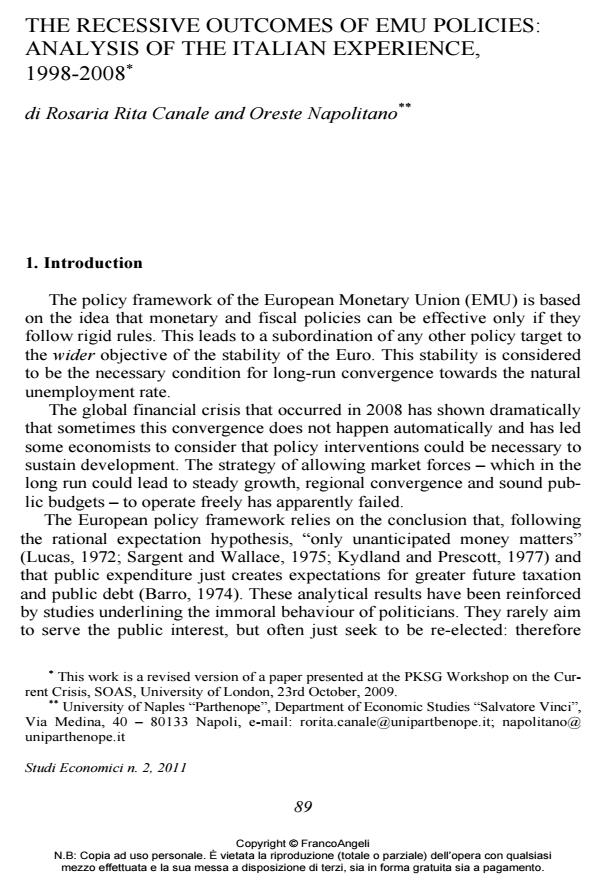The Recessive Outcomes of Emu Policies: Analysis of the Italian Experience, 1998-2008
Journal title STUDI ECONOMICI
Author/s Rita Canale Rosaria, Napolitano Oreste
Publishing Year 2012 Issue 2011/104
Language English Pages 23 P. 89-111 File size 203 KB
DOI 10.3280/STE2011-104005
DOI is like a bar code for intellectual property: to have more infomation
click here
Below, you can see the article first page
If you want to buy this article in PDF format, you can do it, following the instructions to buy download credits

FrancoAngeli is member of Publishers International Linking Association, Inc (PILA), a not-for-profit association which run the CrossRef service enabling links to and from online scholarly content.
The EMU assigns a marginal role to economic policy and relies on the idea that, if prices are kept constant, there will be an automatic convergence towards long-run equilibrium income. These beliefs represent the theoretical underpinnings of fiscal and monetary policy strategies in Europe. In order to highlight the weakness of these foundations, this paper evaluates empirically the effects of public expenditure and interest rate setting on equilibrium income in Italy from 1998 to 2008. Our analysis supports the conclusions that government spending has a positive impact on national income while monetary policy strategy has a negative impact. Moreover, the high level of debt does not produce negative effects on GDP. Finally, at a time of financial crisis, these results are reinforced for fiscal policy, but weakened for monetary policy. The paper finally states that the EMU’s rigid rules for both fiscal and monetary policy have recessive outcomes.
Keywords: Fiscal Policy, Monetary Policy, EMU, Italy
Jel codes: E12, E52, E62
Rita Canale Rosaria, Napolitano Oreste, The Recessive Outcomes of Emu Policies: Analysis of the Italian Experience, 1998-2008 in "STUDI ECONOMICI " 104/2011, pp 89-111, DOI: 10.3280/STE2011-104005